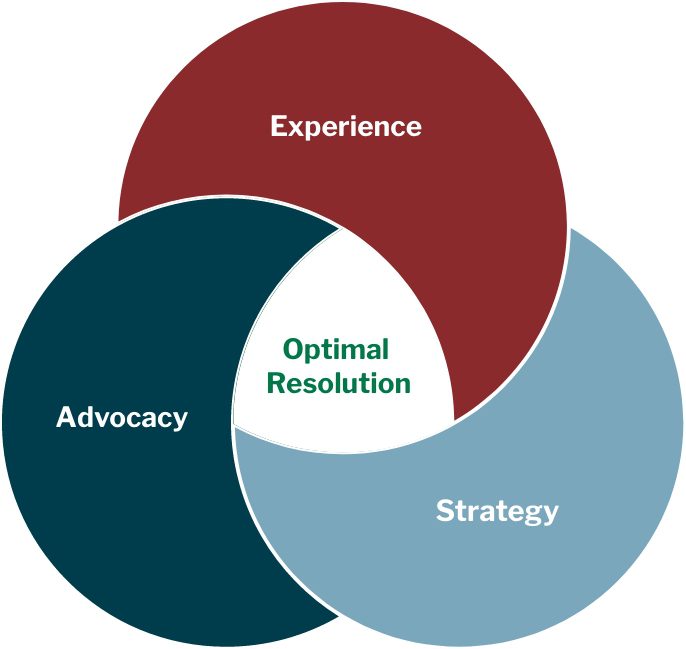 Venn Law Group works to proactively advise its clients in many ways, including related to drafting contracts, internal client procedures, and various other operational matters to protect their respective interests and avoid future disputes. However, not all disputes are avoidable.
Venn Law Group works to proactively advise its clients in many ways, including related to drafting contracts, internal client procedures, and various other operational matters to protect their respective interests and avoid future disputes. However, not all disputes are avoidable.
We assist our clients through all phases of the dispute resolution process, including negotiated resolutions, non-binding mediation, binding arbitration, and litigation. We understand disputes involve time and money you may rather spend growing the business. We help you manage your investment in disputes so you can decide what is the best resolution for you and the business. We also help you understand what impact a decision today will have on the future of your business.
Our experienced attorneys can handle simple disputes regarding contracts and litigation (such as commercial summary ejectment matters) to complex litigation involving significant business or commercial real estate disputes with millions of dollars at stake.
We regularly manage a vast array of litigation in the North Carolina Business Court and the federal courts, including the Western District, the Middle District, and the Eastern District of North Carolina. We also have experience with arbitration panels and appeals in both state and federal courts.
Other examples of our litigation services include:
Commercial Real Estate Disputes
We represent clients in a broad range of real estate-related disputes and litigation, including commercial lease disputes, property and title disputes, and conflicts involving purchase and sale contracts. We also represent commercial landlords in eviction and collection matters.
Commercial Disputes
Venn Law Group handles every type of dispute on the commercial spectrum from breach of contract claims to shareholder disputes and business torts. Our core competencies include any facet of commercial litigation from breach of contract claims in numerous industries to corporate governance and shareholder disputes as well as post-closing mergers and acquisitions disputes.
Employment Disputes
We regularly assist our clients in navigating charges of discrimination filed with the EEOC and EEOC investigations, as well as North Carolina Department of Labor matters. We also assist employers in non-competes or non-solicitation disputes, as well as the host of business tort claims that tend to accompany this sort of litigation.
Additionally, our attorneys routinely assist its employer clients by negotiating severance packages with exiting employees and guiding employer’s through various Human Resources challenges.
FAQs
A subpoena is an order from a court to bring either yourself or evidence in your possession to a specific place at a specific time. The first step is to review the document to determine where and when you are required to act. Make sure your response is timely. The second, which should be done in consultation with your lawyer, is to determine whether the subpoena request is reasonable and how to comply appropriately. Your lawyer can guide you through the requirements. *Important note: if the subpoena requires a deposition, you should retain legal counsel as to be present during the deposition.
There is no exact answer to this question, but the following can help give a framework. Assuming the lawsuit was filed in Superior Court, the trial court administrator for the jurisdiction where your case was filed sets the trial schedule. Before trial, there are several steps that must be completed. These include 1) the discovery process, 2) mandatory mediation, and 3) motions, which may resolve the case or limit the issues at trial. These steps typically take at least twelve months. Once complete, a trial date is set. The trial court administrator and court decide the priority of the trials on a given date using a variety of factors, including the age of the case and the number of previous trial dates.
Although many contracts and statutes authorize the payment of attorneys’ fees to the winning party by the losing party, judges rarely make an award of attorneys’ fees unless there is a statutory requirement. Where it is not clear to the court that the other party is acting in bad faith or is intentionally driving up your legal costs without any reason, a court is unlikely to require the other party to pay your legal fees. Therefore, when considering the cost of litigation versus settlement, you should not heavily weigh the likelihood that you will receive legal fees in your calculation.


